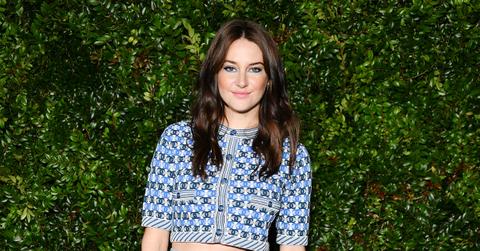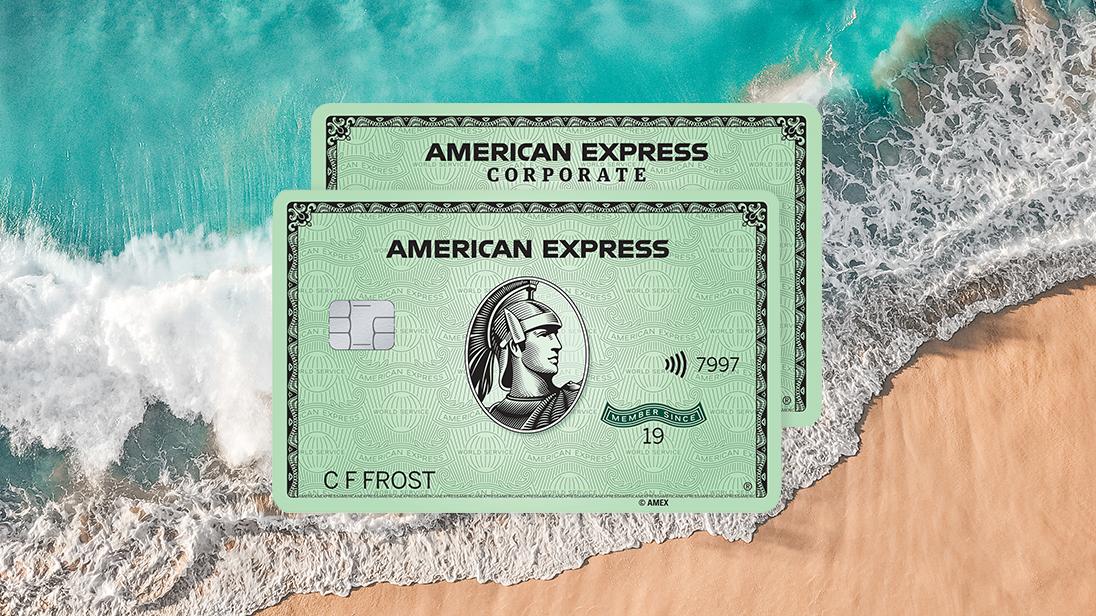Shailene Woodley on Why Environmental Activism Must Be Intersectional: "We Are Nature Ourselves"
"I want to have kids. And I just can’t justify bringing them into a world where I’m not fighting every single day to make direct change for future generations," Woodley tells Green Matters.
Updated Oct. 16 2019, 4:10 p.m. ET

Shailene Woodley is known for playing dramatic roles in popular titles like Big Little Lies and Divergent — but when I walked into her hotel suite on Monday afternoon, she looked straight out of a Nancy Meyers romantic comedy. The actress and environmental activist was snuggled up under a cream throw blanket, sitting on the bay window seat in the master bedroom, gazing out of a huge window looking over Central Park. Introducing herself as Shai, the star warmly invited me to cozy up in the nook, where we chatted about why she uses her platform to advocate for the Earth, how environmental justice is connected to social justice and mental health, and how she hopes her new partnership with a major company will help create a nationwide conversation about sustainability.
"It’s not that I want to use my platform to do it — I’d be doing it even if there was one person following me or if I didn’t have a platform," Woodley tells Green Matters, explaining why she uses her platform to advocate for the environment and other social justice causes. "What makes me want to do it is [that] I want to have kids. And I just can’t justify bringing them into a world where I’m not fighting every single day to make direct change for future generations. So that’s my driver."
"My driver is also — we are nature ourselves, human beings, and we kind of easily lose sight of that," she continues. "We call it 'social injustice' or 'environmental injustice,' but it really comes down to our human condition of emotional imbalance, and that’s my drive for direct change."
One of my favorite things about Woodley's activism is the way she speaks about intersectionality between social and environmental justice. "You can’t talk about racism, sexism, Native American sovereignty, LGBTQ rights, any type of disparity when it comes to money, class, or whatever it might be, without addressing environmentalism. And you can’t address environmentalism without addressing all of those other things," Woodley says. She believes the attack on female bodies in our society "is directly related to the attack on our oceans and the attack on our Earth" — as she sees it, female bodies birth life, just like how our planet births oxygen, water, and everything else we need to survive (that's why they call her Mother Earth, y'all).
"You can’t talk about wanting to change the fossil fuel industry without recognizing that communities that are directly affected the most by fossil fuels are marginalized communities," she says. "You can’t talk about sexism without recognizing the disparity between men and women in the workplace when it comes to tar sands [and other jobs in the fossil fuel industry]."
"But everything is directly connected to one another. That’s why I say at the end of the day, every single form of injustice breaks down to love, and breaks down to our ability as human beings to see one another and feel one another and care about one another," Woodley muses. "Because we can’t really care about the ocean if we don’t care about each other, if we don’t care about ourselves. And so the real work that needs to be done — that we’re not talking about — is the emotional and mental health work, which is: Do you find yourself worthy? Do you have respect for yourself? Do you love yourself? Do you have compassion for yourself when you don’t know what’s right or wrong?"
Woodley believes that we humans tend to turn our inner struggles — whether they're related to our emotional health, our mental health, our interpersonal relationships, or social justice matters — into apathy and self-harm. She says:
"I think we beat ourselves up so much and then we suppress all of that so we end up using our form of self-violence against other people, instead of finding a way to be compassionate towards that which is in ourselves that is difficult for ourselves to reconcile or deal with, whether it’s mental health or emotional health that we’re talking about. So for me, it’s all very intersectional."
Woodley wants to encourage others to use their energy to advocate for injustices they are passionate about — no matter how little "influence" they think they have.
"It doesn’t matter if you have 4 million people on Instagram or if you don’t even have an Instagram. What matters is that you’re talking face-to-face with people who are in your community," she says, adding that she recommends having a friendly conversation with the managers of local establishments about instituting eco-friendly policies, such as plastic bag bans or fees.
"I think social media is a beautiful platform for us to bring topics up, but it doesn’t necessarily drive direct change. I think what always drives the most change directly and efficiently is human-based interaction," she explains. "Because that’s how we’re designed as emotional creatures — to look one another in the eye. Don’t lose sight of the small things and how the small things actually matter the most."
Woodley has a favorite metaphor that certainly makes getting involved in environmental activism seem less daunting. She says:
"You can turn the wheel really quickly on the freeway to try to get on that off ramp. But if you turn it quickly, you’re gonna spin out, and chances are, you’re gonna total your car. If you slowly turn your wheel to navigate your wheel across all four lanes to get on the exit lane, you will exit the freeway swiftly and gracefully without any dangerous interaction. And that’s the metaphor I apply to any form of activism or change. Don’t feel like you have to change the world."
Over the past few years, the Divergent star has made headlines many times for dedicating herself to causes she believes in. In 2017, Woodley — and hundreds of others — were arrested for protesting the Dakota Access pipeline, an affront to both the Earth and Native Americans; this past summer, the actress went on a three-week boat expedition with Greenpeace in the Sargasso Sea to study microplastic pollution; and for her latest move, she has partnered up with American Express on the company's new sustainability initiative — because she believes conscientious citizens need to work with corporations and not against them to make a change.
"I think it’s really important, especially in this day in age, to show that we all have a piece of the puzzle to contribute. And I think it’s easy for people to kind of get lost in our own bubbles, when what we need to be doing is building bridges," Woodley says. "So the fact that there’s a major corporation out there that’s taking steps in its own way … I think that that’s amazing." What she's referring to is American Express' new suite of commitments to becoming a more sustainable company — "not only behind the scenes, such as the new company policy of no single-use plastics, [but also the new] recycling program for current card users, and also creating a new green card."
With Woodley serving as the initiative's spokesperson, American Express has partnered with Parley for the Oceans to create a credit card made out of recycled ocean plastic, to be released later this year. According to AmEx, this is the first-ever credit card "made primarily with reclaimed plastic collected from beaches, islands and coastal communities," all collected by Parley for the Oceans.
The company is also working on a 2020 launch of a credit card recycling program, which will allow card members to send expired or canceled AmEx cards back to the company to be recycled. (In the meantime, TerraCycle has a plastic card recycling program; however, it is geared toward shops and businesses, not consumers.)

"The idea of a major corporation wanting to partner with somebody like me — where the work that I do is oftentimes so grassroots organized — to bring the attention to people who don’t necessarily know a lot about it yet, and bring this awareness into mainstream consciousness, is so exciting to me," Woodley says.
"The current campaign of going and commenting on American Express’ Instagram page or Parley’s Instagram page, and for every comment, two pounds of plastic will be cleaned up, up to a million pounds — that’s amazing," she continues. "But what we’re really doing is just creating awareness and conversations — and that’s what’s so exciting to me, is the power that corporations have to create mainstream conversations. And the more conversation that's had, the more that consumers will drive change forward. It's a symbiotic relationship that we need to start having."